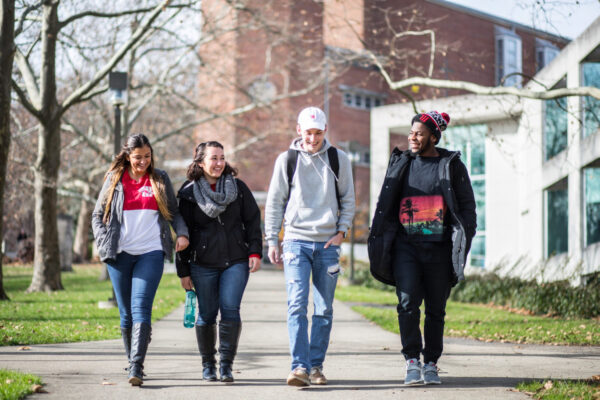New Report Examines Differences in How Students Complete College
Title: How America Completes College: Understanding What Helps Students Graduate
Source: Sallie Mae and Ipsos
A new report from Sallie Mae and Ipsos explores the student journey through higher education for two major groups: completers and non-completers.
With an emphasis on identifying barriers to completion and areas for support for students to completion, Ipsos conducted a survey in February 2022 to over 1,000 respondents to gather data for this report. Key findings and highlights include:
- Among completers, 69 percent had at least one parent with a college degree, compared to 51 percent of non-completers. Among completers, 84 percent attended a four-year college or university, while only 50 percent of non-completers attended the same.
- Completers made an earlier commitment to attend college, with 60 percent noting that they “always knew” they would go to college. Only 31 percent of non-completers held the same belief. In the same vein, 42 percent of completers had a plan to pay for all years of college prior to enrolling, compared to 26 percent of non-completers.
- In examining reasons for attending college, a majority of completers and non-completers identified opportunity (an umbrella term for five different reasons) as their main motivator. A similar number (56 percent of completers, 54 percent of non-completers) identified self-discovery as a factor.
- Additionally, 56 percent of non-completers, compared to 48 percent of completers, identified external factors as reasons for attending college, including familial expectations or a need to provide familial support.
- Once non-completers entered college, over 40 percent rated their overall support received as “fair” or “poor.” The authors noted that completers tended to rank their perceived level of institutional support as higher than their non-completer peers.
Beyond these findings, the report also noted several reasons for non-completers to leave college:
- A change in motivation, focus, or a life change. The report identifies this as the most frequent reason for leaving college, at 40 percent. This reason may include a change in interests, priorities, or major challenges in a student’s personal life.
- Financial reasons. Challenges in balancing school and work, a change in financial status, or having difficulties paying for school were challenges for 19 percent of non-completers. These data indicate that nearly half of non-completers (48 percent) who left school for financial reasons did so during or at the conclusion of their second year.
- Mental health reasons. For 32 percent of non-completers, mental health issues were a factor in leaving college, with 14 percent noting these challenges as their main reason. Over half of non-completers (51 percent) who left higher education for primarily mental health reasons withdrew during or at the conclusion of their first year.
To read the full report, click here.
—Ben Cecil
If you have any questions or comments about this blog post, please contact us.


